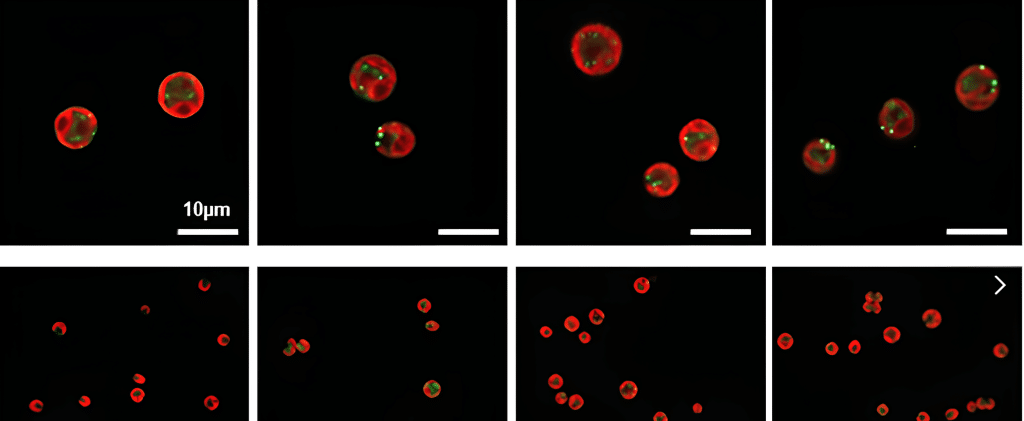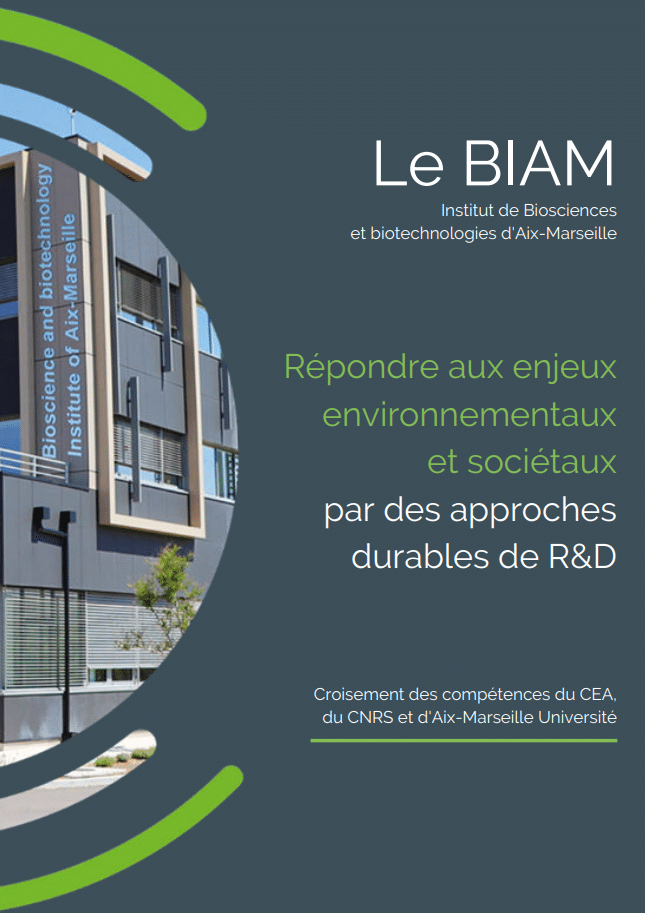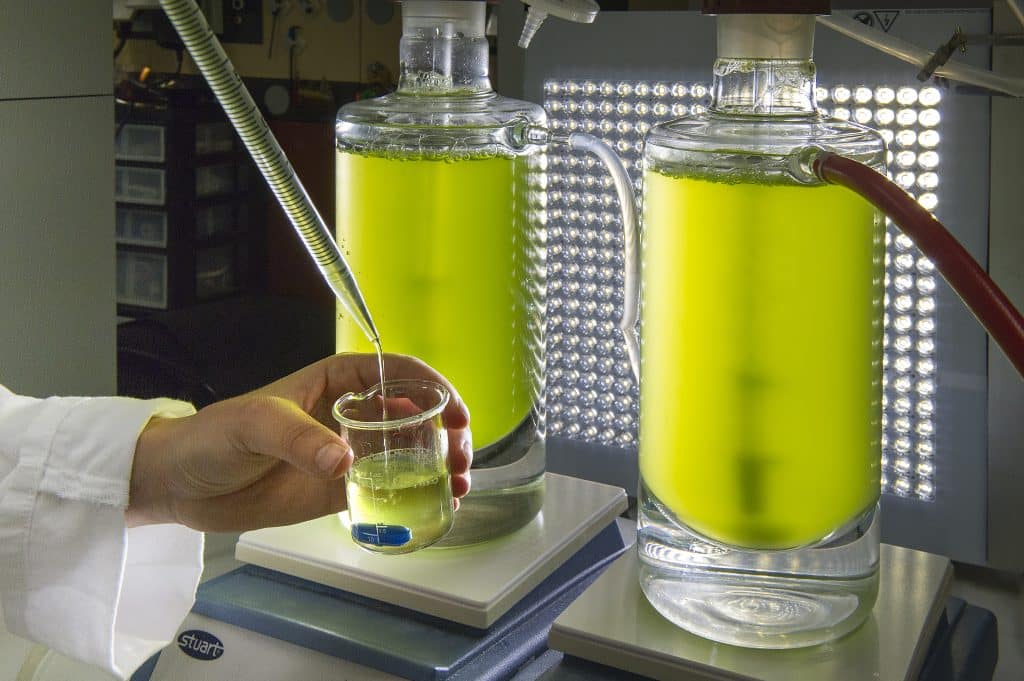Bioenergy: oil production from microalgae just multiplied by five!

By deactivating a natural inhibitor of fatty acid synthesis, BIAM researchers have succeeded in increasing the oil content of microalgae fivefold. This is a major advance in the optimisation of bioenergy, paving the way for more efficient, sustainable production. Fatty acids play an essential role in the structure of cell membranes, carbon storage and signalling. […]
Bacteria form minerals with CO2

Microbial biodiversity A BIAM team has just revealed the diversity of bacteria that produce minerals composed of calcium carbonate inside their cells. This discovery could inspire innovative solutions for carbon capture or ecosystem preservation in the face of climate change, while inviting us to rethink the importance of these processes in natural environments. Imagine microscopic […]
Controlling the flow of electrons in photosynthesis: a key to better carbon storage

BIAM researchers have discovered a new approach to enhancing the ability of microalgae to fix and store atmospheric carbon: by modulating the electron management pathways within the chloroplast, it is possible to improve the energy processes associated with photosynthesis. This breakthrough highlights the central role of energy metabolism and opens up new avenues for the […]
A novel protein with dual function: a key for optimal carbon and energy storage in algal cells

Microalgae and Bioenergy BIAM researchers have identified a key protein, ABHD1, which plays a central role in the management of lipid droplets, the cell’s energy and carbon reservoirs. In addition to deepening our understanding of fundamental cellular mechanisms, this discovery could revolutionize algae engineering by improving cellular oil content, and opening up new perspectives in […]
How do magnetotactic bacteria navigate
in sediments using the Earth’s magnetic field?

Researchers have shed light on the fascinating behavior of magnetotactic bacteria, which use the Earth’s magnetic field to navigate in complex environments. These microorganisms, which live within sediments, have demonstrated a unique ability to adapt their movement to avoid obstacles. A discovery that opens up new avenues on the understanding of microbial motility and the […]
Strategic Photosynthesis:
The CDSP32 Enzyme Emerges to Support Plant Adaptation

BIAM researchers have highlighted the role of an enzyme, the thioredoxin CDSP32, in adjusting the photosynthetic metabolism of plants, in response to fluctuations in their environment. This advance could contribute to the development of crops better adapted to climatic challenges. Photosynthesis, metabolism essential for plant growth and life on Earth, converts light into molecules such […]
i-PhD Grand Prix

Alcasun, the biosourced revolution: Exclusive interview with the winner Alcasun is a biotech start-up project targeting cosmetics, green chemistry and bioenergy markets. The founders of this future startup have succeeded in isolating an algal enzyme capable, in the presence of blue light, of converting fatty acids into hydrocarbons (or alkanes) for cosmetic use. Alcasun’s ambition […]
Teaching training

Le BIAM A Key Player in Environmental Biology Education Supporting and Integrating Students into Our Institute Our institute is deeply committed to the development and support of student training. In an enriching and stimulating environment, we welcome postgraduate students (Masters and Doctorates) as well as trainees at all levels, whether through traditional programs or sandwich […]
CO2 sequestration by algae:
the energy source behind the process unveiled

An international collaboration between BIAM researchers and the Carnegie Institution for Science in Stanford (USA) has revealed how solar energy is supplied to metabolic reactions of algal cells to fuel atmospheric CO2 fixation. This discovery provides an understanding of the fundamental basis for efficient CO2 sequestration by microalgae. These images show where the mitochondria are […]
Unlocking Plant Resilience: Evolutionary Synergy in Stress Adaptation

A groundbreaking mechanism enabling plants to optimize their photosynthesis has been unveiled by a scientific collaboration led by the BIAM. Remarkably, this discovery involves molecules of bacterial origin, and opens promising avenues for developing agriculture that is more resilient to climate change. Chlorophyll fluorescence images of plants for analysis of photosynthetic activity Photosynthesis, fundamental to […]